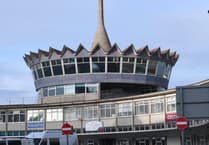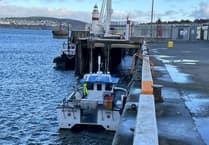The Isle of Man’s alleged role in facilitating illegal betting has been highlighted by an international horseracing federation.
It comes as another reputational hit to an island already facing UN criticism about lax regulation and immigration controls which it is claimed have helped enable the global expansion of Asian crime syndicates.
The latest criticism has been outlined in the latest quarterly bulletin from the International Federation of Horseracing Authorities’ council on anti-illegal bettering and related crime.
The federation’s membership is made up horseracing organisations from across Europe, Asia, the Americas and the Middle East.
Its latest quarterly bulletin looks at the ban on offshore gaming operators in the Philippines and the ‘consequent global expansion of illegal betting hubs’.
In a case study it looks at the Isle of Man which it described like the Philippines, as a ‘pseudo-regulator specialising in issuing licences to betting companies targeting Asia’.
And it concludes: ‘The very real worry is that organised crime syndicates are exporting their model to new territories, and suborning regulators and officialdom by presenting as “legitimate” enterprises.
‘Illegal betting is not, as many people wrongly believe, a victimless crime, but a key pillar supporting a vast range of other transnational criminality – a key fact which global stakeholders need to understand.’
Media Isle of Man reported last month that a Manx government agency wants to attract offshore gaming operators from the Philippines - despite concerns about alleged links to cyber-fraud, human trafficking, kidnapping, extortion and money laundering.
Digital Isle of Man agreed funding of £15,000 to visit Manila to ‘explore opportunities to attract credible operators’.
Philippine Offshore Gaming Operators (POGOs) were banned this year by President Ferdinand Marcos Jr amid concerns over alleged links to criminality.
Mr Marcos said in his address: ‘Disguising as legitimate entities, their operations have ventured into illicit areas furthest from gaming such as financial scamming, money laundering, prostitution, human trafficking, kidnapping, brutal torture, even murder.’
The IFHA bulletin says the Philippines’ ban on POGOs highlights the ‘profound negative impacts of illegal betting, which is intertwined with organised crime, human trafficking, cyber fraud, and corruption’.
‘These present significant challenges not only for the Philippines or Asia alone, but globally,’ it adds.
Gambling is of course not illegal in the Isle of Man and nor is it against Manx law to target countries where it is. But the Council of Europe defines illegal betting as any betting activity which is prohibited in the country where the customer is located.
There is also a concern that offshore gaming companies in jurisdictions like the Isle of Man are being used by international crime syndicates to facilitate the flow of illegal money - and regulators are not keeping pace with the changing threat.
The IFHA bulletin sets out how Manx police this year raided the offices of one licensed online betting company whose licence was immediately suspended by the gambling regulator, while a related cryptocurrency businesses was ordered by the financial regulator to suspend operations.
Chinese court documents, it notes, provide evidence of a cyber-scam operation responsible for large-scale overseas fraud which had 100 employees transferred from a Philippines POGO to work in the Isle of Man.
The bulletin also cites the recent UN Office of Drugs and Crime report which outlines connections between the co-founder of the raided gaming firm and illegal betting and related crime compounds in South East Asia.
Noting how the online gaming company had been in the process of building a huge new headquarters in Douglas before it was raided, the IFHA bulletin says this underlined that ‘due diligence often is abandoned when such entities begin to deploy their illicit profits’.
.jpg?trim=0,0,0,300&width=752&height=500&crop=752:500)


.jpg?width=209&height=140&crop=209:145,smart&quality=75)
